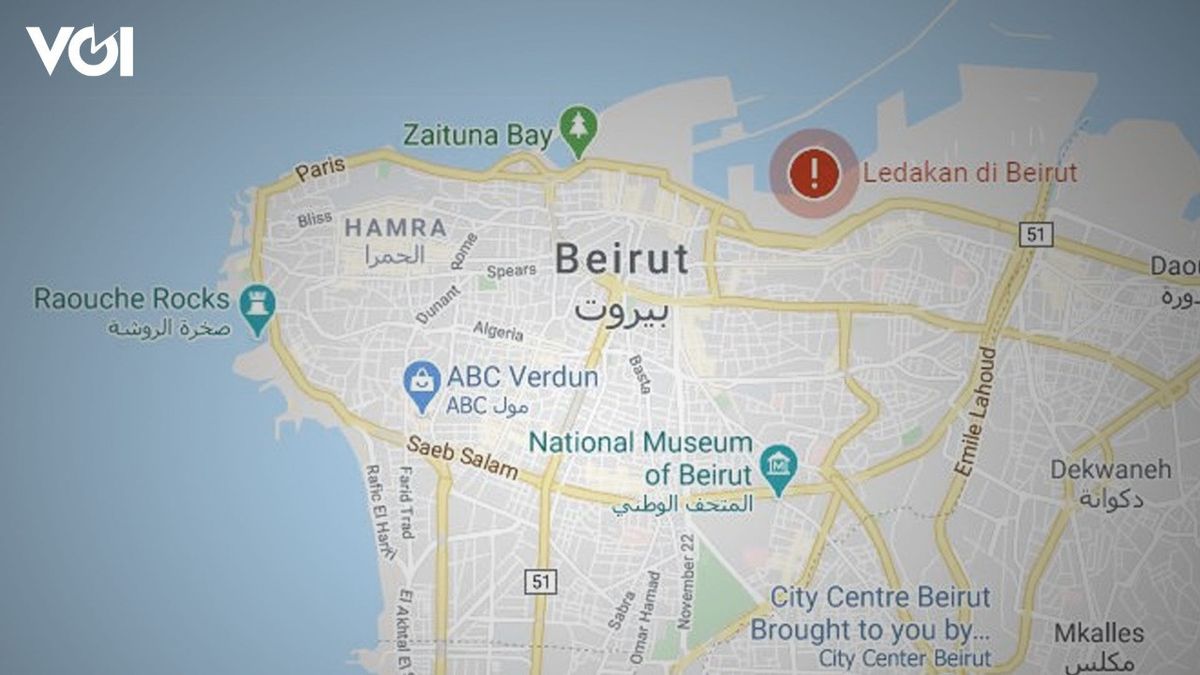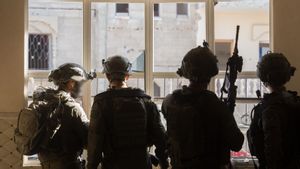JAKARTA - When an explosion ravaged the Lebanese capital, Beirut, the incident wreaked havoc in almost every place in Beirut. Buildings 10 kilometers from the blast site were damaged.
Baabda Palace, the official residence of the Lebanese president, was also badly damaged. Shards of glass filled the road and the explosion caused an earthquake measuring 3.3 on the Richter scale, said the United States Geological Survey.
From the data obtained by the VOI team on Wednesday, August 5 at 16.30 WIB, as many as 100 people were declared dead and more than 4,000 injured. Many Beirut residents rushed to the hospital to donate blood.
"I was on the terrace when the whole neighborhood was shaking left and right," said Bane Fakih, a filmmaker living on the western tip of Beirut, quoted by CNN.
The explosions formed a mushroom cloud and could be heard in the farthest outskirts of the city. Giant red clouds hung above the sky as the townspeople began to reveal the scale of the damage to their homes. Many residents sought treatment for their wounds and frantically called their loved ones to see if they were safe or not.
"The port of Beirut is completely destroyed," said eyewitness Bachar Ghattas, describing the ongoing events as akin to an apocalypse.
"It's very, very scary what's happening right now and people are scared," he said. "Emergency services overwhelmed."
There are conflicting reports about what caused the explosion. At first the explosion was discovered to be a large fire in a fireworks warehouse near the port. The director of the Public Security Directorate said the explosion was caused by "high explosives" being seized, but gave no further details.
This gruesome sight comes after nearly a year of economic and political turmoil plunging Lebanon to the brink of uncertainty. In fact, according to many experts, it is bringing Lebanon to the brink of collapse. Poverty has soared to more than 50 percent and the sight of people looking for basic necessities in landfills has become commonplace.
The young people who only a few months ago rebelled against the country's politics were desperately looking for a way out.
"I've never seen Beirut like this before. Beirut today looks like our hearts," said activist Maya Ammar. "We don't have anything left. Just when we thought it couldn't be worse."
"My family and my loved ones asked me to come home because they didn't want me to inhale the poison, but I couldn't go back home. I have friends who lost their homes," he added.
"Their house is completely destroyed. I have to go and help them."
Confusion continues regarding the number of houses destroyed. Several reports, based on statements from Beirut Governor Marwan Abboud, said that hundreds of people lost their homes. Meanwhile reports from local media MTV reported that 250,000 people were left homeless.
The English, Chinese, Japanese, Arabic, and French versions are automatically generated by the AI. So there may still be inaccuracies in translating, please always see Indonesian as our main language. (system supported by DigitalSiber.id)










